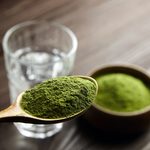Get Familiar with ‘Vitamin F’
A new nutritional superstar is finally getting critical acclaim. You’ve heard that vitamins A, C, D, E, and K are essential for good health, but did you know that fat plays a major role in keeping your body healthy? Here are the facts on fat.
Fat Gets a Facelift
A half century ago fat began getting some bad press. Scientists discovered that people who live in countries where the diets are rich in saturated fat have far more heart attacks than people who eat less meat, dairy foods, and other sources of the stuff. Later research showed that eating saturated fat raises blood levels of cholesterol, causing this waxy substance to build up in the arteries and block blood flow to the heart.
This information spurred an anti-fat movement which had some unfortunate consequences: many people cut back on all fats. Present day research shows that the anti-fat trend may have actually made us sicker.
Why You Need “Vitamin F”
Your body stores about 80 per cent of the fat you consume. Ideally, you burn off most of this reserved energy by staying physically active. If not, the fat you eat becomes the fat you fear, the kind that makes your clothes too snug and imperils your health.
However, about 20 per cent of the fat in your diet is not stored. Instead, your body puts it right to work, since an astonishing variety of tissues and biological processes require a daily infusion of fat. Without fat, your hair and skin would be dull and dry. More important, fat in the diet allows your body to absorb the so-called fat-soluble vitamins, including A, D, E, and K. Every cell in your body needs fat to build a healthy protective membrane. Fat also provides the raw materials that your body uses to produce chemicals that control blood pressure, prevent blood clots, and regulate the body’s response to injury and infection.
Many scientists and nutrition experts now believe that unsaturated fats inhibit everything from diabetes, depression, and dementia to cancer, joint pain, and yes, even heart disease.
Defining Good Fats
Your body can’t make some types of fatty acids—the building blocks of fat—that are essential to health. That’s why your diet must include the aptly named essential fatty acids, which come primarily from fish and plant oils and fall into the broader category of polyunsaturated fats. Meanwhile, you can live without eating monounsaturated fats, which form the other major category of unsaturated fat—but mounting research suggests that you may not live as long or as well as people who do enjoy plenty of these other good fats.
The moral of the story? Cutting fat out of your diet isn’t a good idea. Sure, you might finally shed those pesky pounds, but chances are your body won’t be getting the weapons it needs to fight disease and maintain proper functioning. Eating a balanced diet, full of vitamins, carbohydrates, and healthy fats is the way to go.



